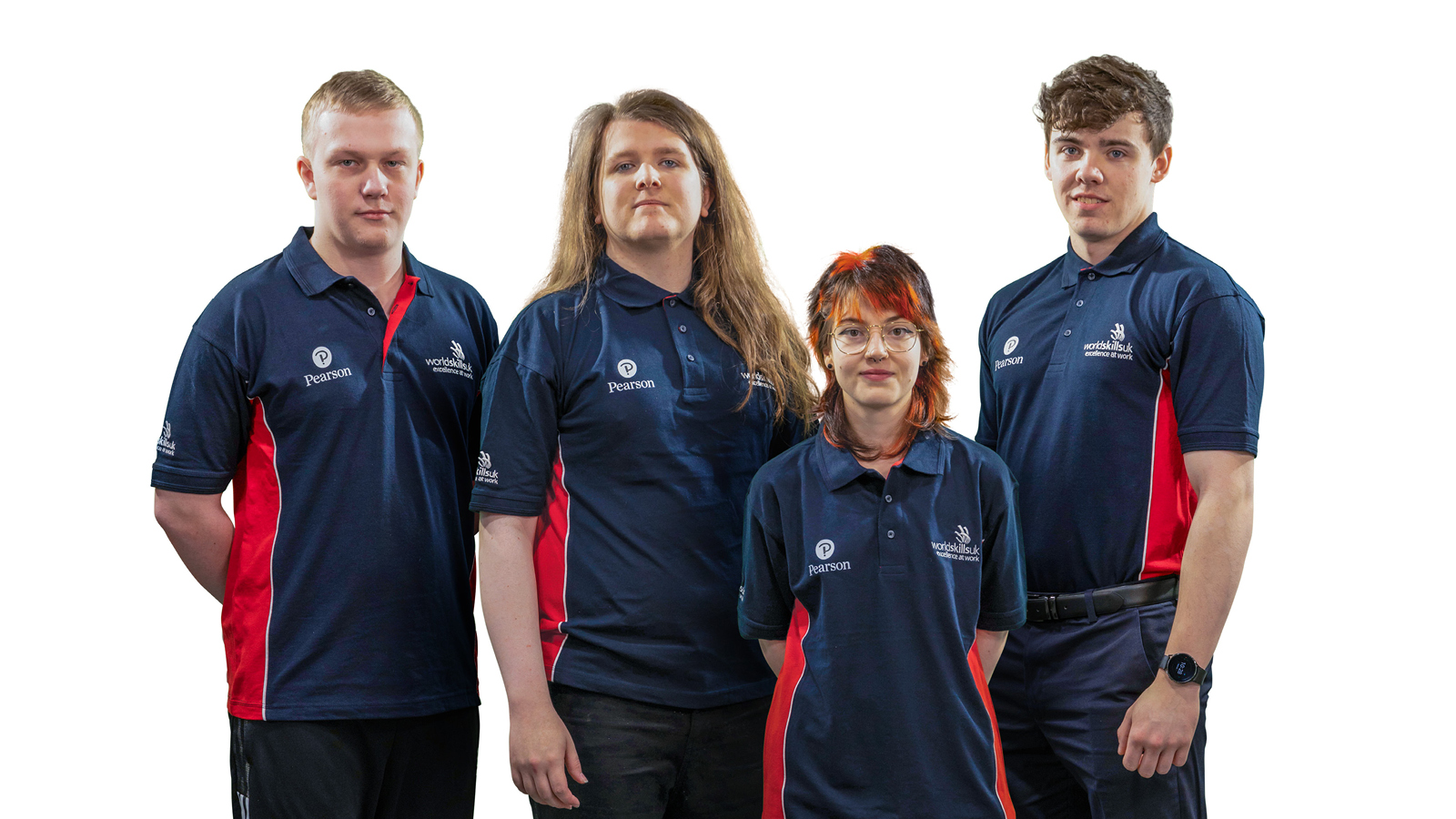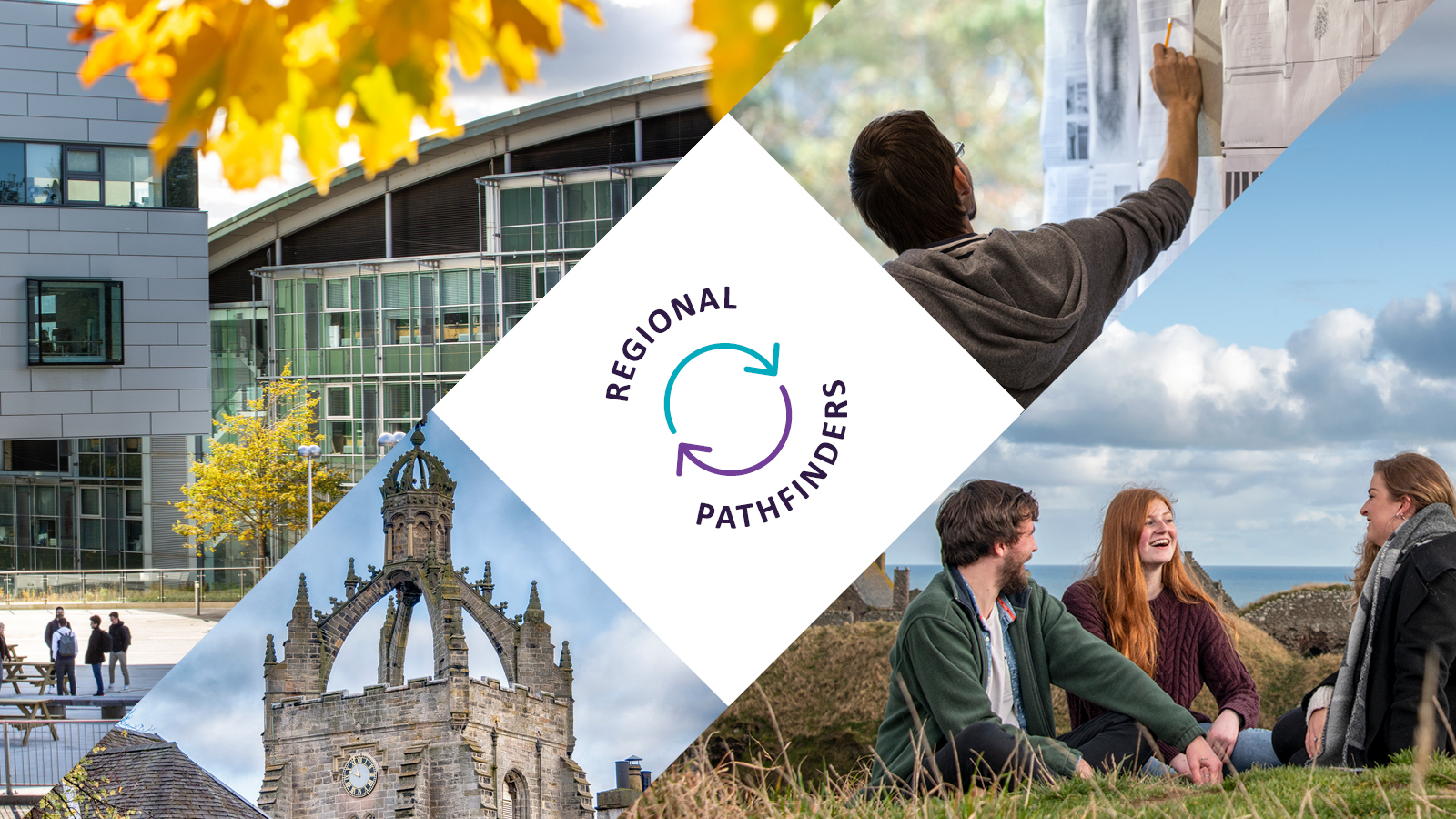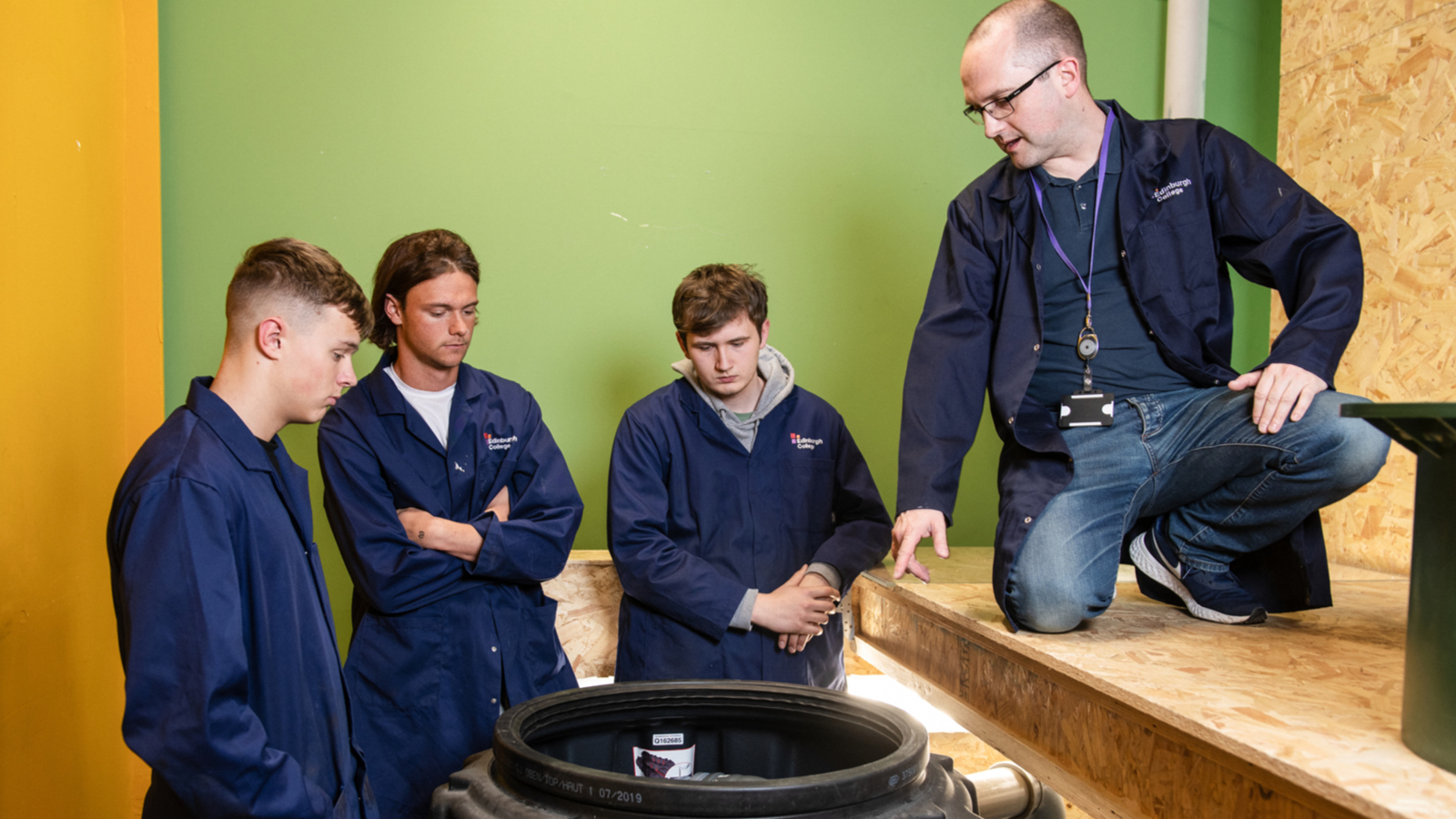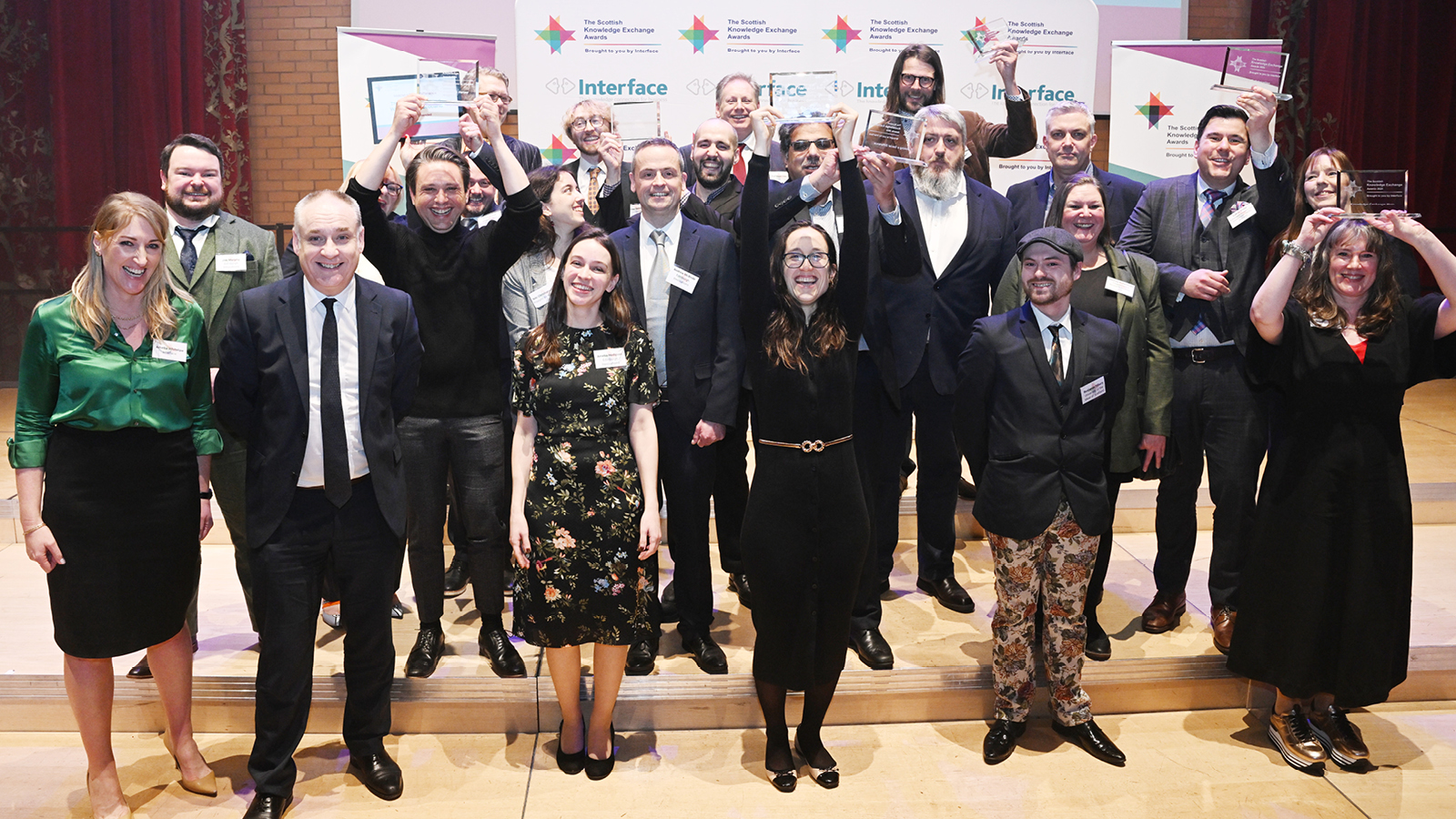

Photo: Glasgow Clyde College
The Scottish Government launched its Review of the Regional Strategic Bodies within the Glasgow and Lanarkshire college regions consultation on 17 June 2024.
Interested parties are being asked to share their views on the Scottish Government’s proposals to reform the regional strategic bodies (RSBs) for the Glasgow and Lanarkshire multi-college regions.
Multi-college regions were established in 2014 as part of the national college regionalisation project. This was designed to reduce duplication, simplify pathways through education and better align colleges with regional economies. The project led to the creation of 13 college regions. Three of the regions, Glasgow, Lanarkshire and Highlands and Islands, contained more than one college and were designated multi college regions.
In May this year, Graeme Dey, Minister for Higher and Further Education; and Minister for Veterans, announced in the Scottish Parliament, plans to consult on proposals to reform the regional strategic bodies for the Glasgow and Lanarkshire multi-college regions.
The Scottish Government has been clear that any future changes will strengthen oversight and accountability of the Glasgow and Lanarkshire colleges, while continuing to support regional coordination of curriculum planning and provision of streamlined learner pathways.
Full background details are available in the Scottish Government’s consultation paper which also contains information on how to respond. The consultation seeks views on the proposals by 20 September 2024.

Photo: Edinburgh Napier University
The post-16 education sector sustainability body, EAUC Scotland, has published its eagerly awaited Commuting Survey Guide.
The Guide is part of a comprehensive set of resources that also include a Microsoft Forms template and a commuting emissions calculator. The resources have been developed as part of EAUC Scotland’s ground-breaking Step-Change for Sustainability programme funded by the Scottish Funding Council.
The resources will be made freely available to colleges and universities throughout Scotland.
Matt Woodthorpe, Programme Manager at EAUC Scotland, said:
“We’re really excited to be launching these new resources. They’re the result of a lot of hard work by staff at EAUC Scotland and also by practitioners in colleges and universities who have made a fantastic contribution through their reviews and feedback.
“With the resources, colleges and universities in Scotland will be able to understand best practice, readily launch a commuting survey, and report their emissions to the Scottish Government much more easily, saving significant amounts of time”.
Martin Boyle, Interim Chief Executive of the Scottish Funding Council (SFC), said:
“This is a great example of SFC funding practical and effective ways of supporting colleges and universities in their journey to net zero.
“I’m incredibly grateful to EAUC Scotland and to those within the sector who have worked so hard to produce these materials.”
More details are available on the EAUC Scotland website.

Photo: University of St. Andrews
Demand for places at Scottish universities from applicants living in Scotland has increased according to new figures from the current applications cycle.
Published today by the universities admissions service, UCAS, the figures show applications from Scottish residents to Scottish universities have increased by almost 2.5% compared with last year. Looking specifically at Scottish school leavers, UCAS reports that 20,810 have applied for a place at a Scottish university – up 4% from 2023.
There is also evidence in today’s figures of further progress towards fairer access to university. The proportion of applicants from Scotland’s 20% most deprived communities to UK universities continues to increase, with 17.4% of applicants in the current cycle coming from those areas. For 18 year olds in this group, the application rate rises to 20.7%
Beyond Scotland, there has been a fall in the number of applicants from the European Union with a decrease of 5.7% on last year. Non-EU figures appear to be plateauing with a decrease of 1.7%.
Commenting on the data, SFC’s Interim Chief Executive, Martin Boyle, said:
“It’s encouraging to see an increase in demand for a place at a Scottish university from Scottish applicants.
“It’s especially good to find evidence in today’s figures of young people in the most deprived areas of the country taking the first step towards the life-changing experiences universities can provide. We will continue to monitor the applications cycle as we move past results day next month and into the clearing phase.”
The full figures are available on the UCAS website.

The Scottish Funding Council (SFC) is welcoming five new members to its board. The appointees will replace board members whose terms of office have recently come to an end.
The five new members are Professor Cara Aitchison, Dr Richard Armour, Linda Hanna, Kate Lander, and Alison Nicolson.
Professor Cara Aitchison was President and Vice-Chancellor of Cardiff Metropolitan University between 2016 and 2024. Before that she was Head of Moray House School of Education at The University of Edinburgh.
Born and educated in Scotland, Cara graduated from the University of Edinburgh before gaining her postgraduate and teaching qualifications. She brings extensive experience of higher education management and has expertise in transformational leadership.
Dr Richard Armour is a graduate of Glasgow, Open and London universities. He has spent most of his career in higher education, initially in the UK but predominantly overseas, particularly in Hong Kong serving in faculty, administrative and leadership roles.
Latterly he was Secretary General of Hong Kong’s University Grants Committee. Richard has recently served as a council member of Research England.
Linda Hanna is an experienced leader and non-executive working across academia and the public and private sectors where she focused on innovation and major economic opportunities.
As a member of the Executive Team at Scottish Enterprise for 10 years, Linda worked nationally and internationally, helping accelerate strategic investment in different parts of Scotland. She has a keen interest in science, innovation, and skills.
Kate Lander’s career spans education and financial services. She initially qualified as an accountant, before becoming a chartered financial analyst. After leaving banking, Kate returned to education in a number of leadership roles, most recently as CEO of Ivy House.
Between 2017 and 2023 she served on the Board of the Office for Students and was also Chair of its Risk and Audit Committee.
Alison Nicolson is an experienced leader and qualified accountant. She has held a variety of senior roles within corporate and commercial banking. Alison has extensive experience in finance; strategic leadership; and transformational change within the financial services sector.
She has been on the boards of charities supporting people with disabilities and is currently a member of the Board of the Independent Living Fund.
Commenting on the new appointments, SFC’s Board Chair, Mike Cantlay, said:
“The next few years will be a period of addressing challenges and seizing opportunities as we work with the Scottish Government and our partners towards the reform of Scotland’s tertiary education; skills; and research and innovation landscape.
“It is important that our board has a diversity of backgrounds and experience, and that its members are passionate about transformation and achieving the very best social and economic outcomes for our investments.”
“The new board members announced today will bring strengths in all these areas and I very much look forward to working with them all.”

Photos (left to right): University of Aberdeen, University of the Highlands and Islands, University of Glasgow
The UK REF team has today announced the universities that will participate in its People, Culture and Environment (PCE) pilot exercise. The announcement follows an online applications process that has been in progress since the middle of May.
The pilot exercise will focus on eight of REF 2029’s units of assessment, including computer science and informatics; history; and biological sciences. The panels will be comprised of academics, research professionals and others with appropriate expertise. Panel members will contribute to the development of PCE indicators and submission/assessment templates.
Although the initial plan was for 30 institutions to take part, the list has been extended to include a further 10 universities in order to widen the opportunities for participation and spread the burden of work. The list, which covers the whole of the UK, has been compiled with a view to providing a broad range of submission sizes, breadth of provision and experience of participation in previous REF exercises.
Four Scottish universities are included; Edinburgh Napier University, the Royal Conservatoire of Scotland, the University of Dundee and the University of Glasgow.
There are further opportunities to engage with the development of PCE for REF 2029. The PCE indicators project has recently launched this survey which is open to all with an interest in the assessment of PCE in REF. In addition, next year, when the pilot assessment is underway, the PCE indicators project team will deliver engagement activities to gather input on the developing indicators from the wider sector.
The full list can be viewed on the REF 2029 website.

Photo: Robert Gordon University
The latest National Student Survey report is published today and shows an increase in the number of students at Scottish universities reporting overall satisfaction with their course.
The survey is one of the largest of its kind in the world and asks students across the whole of the UK questions on a wide range of issues including teaching and assessments, library resources and access to information about mental health support services.
Just under 346,000 UK final year students responded this year with 26,000 respondents coming from universities north of the border. Their answers help to provide useful information for future students as well as supporting universities in their work towards continuous improvement of the student experience.
The percentage of students at Scottish universities saying that, overall, they were satisfied with their course rose by 1% against the 2023 figure to 78%. However, this remains below pre-pandemic levels; the 2020 figure was 85%.
Scottish universities scored particularly highly in responses to the question: “How good are teaching staff at explaining things?” where 92% of respondents responded positively. They also scored strongly in questions about the contribution of library resources to learning (91 % responding positively) and the ease of accessing things like equipment, software and facilities (an 87% positive response).
The full results of the 2024 National Student survey are now available on the website of the Office for Students.

Photo: Edinburgh Napier University
The latest university performance figures show an increase of two percentage points in the proportion of graduates moving into full time employment after leaving a Scottish university.
According to data released today by HESA, the UK-wide agency for higher education statistics, 75% of graduates from Scotland’s universities in 2021-22 were in full or part time work 15 months after completing their course.
The proportion of Scottish university graduates moving into what the report calls ‘positive destinations’ (including voluntary employment and further study) is above the UK average at 90% compared with the UK figure of 89%.
The report also shows graduates from Scottish universities with slightly higher salaries than those from universities in other parts of the UK; their median earnings have risen by almost £2,000 compared with 2020-21. 77% of those leaving with a science related degree were working in roles described as ‘highly skilled’, the figure rises slightly to 78% for non-science graduates.
Meanwhile, the proportion of graduates leaving a Scottish university and entering work in Scotland remains at 84%.
More information on today’s Graduate Outcomes 2021-22 report can be found on the HESA website.
On 15th May at the Advanced Research Centre, SFC and the University of Glasgow co-hosted a celebration event ‘Ambition and Impact: International Development Research in Scotland’. The event brought together around 150 people including researchers, research professionals, governments and funding bodies to celebrate international development research in Scotland and facilitate knowledge sharing.
The day highlighted the huge range of international development successes such as planning tools for decision making for sand supply in Vietnam, to genomic and advanced reproductive technologies to address tropical dairy cattle genetic improvement challenges, to archaeological investigations of prehistoric ‘routes and roots’ on Rarotonga and Aitutaki Cook Islands and co-producing tourism development, education and research tools with archaeological heritage asses.
A playlist of the talks from the day are available on SFC’s YouTube channel:

Photo (left to right): Newbattle Abbey College, UHI Perth, Fife College, City of Glasgow College
The latest College Performance Indicators report from the Scottish Funding Council shows an increase in the percentage of students completing their course.
The report, published today, takes a sector-wide look at the performance of Scotland’s colleges in 2022-23 and illustrates trends over the past decade. Today’s figures show a 4.6pp increase in the completion rate for those studying on a further education course and a 3pp increase amongst those studying for a higher education qualification.
The report distinguishes between students who completed their course by achieving the qualification they wished to attain and those who followed their course of study to the end but left without achieving the qualification they were aiming for. In 2022-23, successful completion rates rose to 63.6% for further education and to 65.5% for higher education. In both cases, however, these remain lower than the pre-pandemic rates.
The report also found that male students were more likely than female students to successfully complete their further education programme while the opposite was true for higher education.
Full details of all the findings in today’s report are now available along with supporting documentation.

The Scottish Funding Council for Further and Higher Education has a rich source of sector data through regular data returns from the sectors we fund. We are committed to openness and transparency, and this is why we work hard to respond to ad-hoc requests from organisations and individuals.
Our small Data Team receives a high volume of data requests. To help us manage these requests effectively, we have introduced an improved approach to customer service. Our new ‘Data Request Form’ is a short and easy-to-use form which will ask you to tell us about your request, for example, how you intend to use the data provided. The information you provide will allow us to respond to requests effectively and efficiently.
We are committed to responding to data requests where possible and will sign-post you to alternative data sources when we can. Our Data Requests system is continuously monitored during standard working hours. Where we are able to provide the data you have asked for, our standard response time is 20 working days. Where we are unable to deliver on your request (for example, if we do not hold the data you have requested) then we will respond to you as soon as possible to let you know and, if appropriate, point you to an alternative source.
This new approach will enable our teams to continue to be responsive to data requests, while also working hard to deliver our longer-term ambitions to improve the way we share our data, for example, via dashboards on our website and through our publications.
We look forward to sharing further updates about our digital transformation programme as it progresses.

Four Scottish students are amongst the 31 young people preparing to compete for Team UK at WorldSkills Lyon 2024.
Known as the ‘skills Olympics’, the international event has included a UK team since 1953. This year’s team will be heading for glory in France just hours after the Olympic flame is dimmed in Paris.
The four Scottish competitors are Nathan Young, Finley Graham, Yasmin George and Danny McBean.
Nathan, from East Kilbride received his training in Mechanical Engineering and Computer-Aided Design at New College Lanarkshire and the University of the West of Scotland. Finley, whose training has been provided by the City of Glasgow College and Glasgow Caledonian University, comes from Airdrie and will compete in the IT Network Systems Administration category.
Glasgow’s Yasmin George was also trained at the City of Glasgow College and Glasgow Caledonian University. Her speciality is 3D Digital Game Art. Finally, Danny McBean who is competing in the Renewable Energy category is a former apprentice from Elgin whose training at UHI Moray led to a job at the Grants whisky distillery in Dufftown.
WorldSkills Lyon 2024 will host over 1,500 young people from 65 countries, who will compete in 62 different skill disciplines.
Team UK, which is sponsored by global learning company, Pearson, will be competing in disciplines including cyber security; renewable energy; digital construction; cooking; hairdressing; and painting and decorating. The event will take place from 10-15 September.
Ben Blackledge, Chief Executive, WorldSkills UK said:
“WorldSkills Lyon 2024 – think Olympic Games – where the prize is the world-class skills that UK employers are crying out for.
“The UK’s participation in the ‘skills Olympics’ will provide vital insights to ensure we can develop our apprenticeship and training programmes, to make them truly world-class.”
“I couldn’t be prouder of the exceptional young people in Team UK; they are fantastic role models. Together with Pearson, we will use their participation at WorldSkills to boost the prestige of technical and vocational education, inspiring many more young people to take up technical and vocational training across the UK to help drive investment, jobs and economic growth.”
Karen Watt, Chief Executive of the Scottish Funding Council, said:
“Being selected for Team UK at WorldSkills Lyon 2024 is a huge achievement and represents an incredible commitment from the young people who make it through to the team and also those who train them.
“It’s fantastic to see Scotland’s colleges and universities represented at the Worldskills event by these amazing young people. I wish Nathan, Finley, Yasmin, Danny and the whole of Team UK the very best of luck in September.”

Photos: University of Aberdeen, University of Glasgow, University of St. Andrews
The Scottish Funding Council (SFC) has today published indicative funding allocations for Scotland’s universities.
SFC has increased investment in university research and innovation and has allocated funds in a way that maintains the investment in teaching for Scottish students. As planned, today’s announcement also confirms the removal of 1,289 temporary places that were made available in 2020-21 to support additional learners through the Covid-19 period. These learners will be graduating at the end of this academic year. The removal of these places does not impact on opportunities for Scottish students because there are more funded places available now than before the Covid period, mainly due to EU students no longer being funded but the places remaining in the system and still being available for Scottish students.
However, this was a particularly challenging budget settlement for the university sector and there has been a reduction overall in the resource funding allocated, in line with the budget set by the Scottish Government.
Commenting on today’s announcement, SFC Chief Executive Karen Watt said:
“This has been a particularly challenging funding round. While we recognise that universities are operating in a difficult financial environment, managing a range of different pressures, the funding package we are announcing today will ensure that more opportunities are available for Scottish students than pre-Covid. We are also increasing investment in university research and innovation given its vital importance to new discoveries and making research useful for social and economic benefit.”
Full details of the allocations are available on SFC’s website.

Photos: Robert Gordon University and University of Aberdeen.
Today the National Energy Skills Accelerator (NESA) and partners are launching Energy Career Pathways, an interactive tool for prospective employees in the energy sector to identify the qualifications they would require for specific roles and where they can undertake qualifications in the North East of Scotland.
Energy Career Pathways is one of seven innovative pilot projects now in development in two Pathfinder regions in Scotland where SFC is working alongside key regional education and skills partners.
Supported with funding from SFC’s regional tertiary pathfinder, the aim of Energy Career Pathways is to help accelerate the pace of workforce development. Key partners recognised there were skills demands which would develop as a result of the energy transition.
The project demonstrates the advantages of regional collaboration as NESA brings together the region’s leading academic institutions and built on this to develop a unique energy transition skills pathway.
Community engagement was undertaken to support the Energy Career Pathways and data was gathered through surveys, interviews with third sector providers, youth group workshops and community group meetings.
Established in June 2021, the NESA is a collaborative initiative between the University of Aberdeen, Robert Gordon University and North East Scotland College (referred to collectively as NESA institutions), supported by SFC, Skills Development Scotland and Energy Transition Zone Ltd. NESA works with businesses and training organisations with the aim to create a more flexible and resilient workforce for the energy sector.
For a full demonstration and an overview of NESA’s Energy Career Pathway, register now for their webinar demonstrating the tool on 23 April 2024.

Photos: UHI Perth, Forth Valley College, Dundee and Angus College
The Scottish Funding Council (SFC) has today published indicative funding allocations for Scotland’s colleges for Academic Year 2024-25.
Today’s announcement is set within the context of a particularly challenging budget settlement for further and higher education. SFC has worked closely with sector representatives to secure a flat cash core teaching budget, committing to invest £509m to support learners across Scotland’s 24 colleges. The announcement also provides colleges with details on their student support allocations, providing vital support for students to complete their studies, and on capital budgets, enabling colleges to maintain and invest in their estates and digital infrastructure.
Commenting on today’s announcement, SFC Chief Executive Karen Watt said:
“We make these early allocations so that colleges have planning assumptions to support them in their decision making. We know colleges face challenges from a constrained public sector funding environment and rising costs. Our indicative funding allocations will enable them to plan for the forthcoming academic year, providing vital opportunities for learners and playing a key role in delivering the skills Scotland needs.”
Full details of the allocations are available on SFC’s website.
The UK Research Partnership Investment Fund (UKRPIF) reached a significant milestone this week with its total investment now topping £1 billion.

Photo: University of Glasgow
The UK-wide fund for research partnerships announced this week a further £63 million of investment. The total amount of money the fund has brought into university research in the UK now totals more than £1 billion.
First introduced in 2012, the UKRI UK Research Partnership Investment Fund (UKRPIF) asks universities to attract a further £2 from non-public sources for every £1 invested by the Fund. Its purpose is to support the development of state-of-the-art, large scale research infrastructures to enable world-leading research.
The Scottish Funding Council is one of the Fund’s partners alongside Research England, the Higher Education Funding Council for Wales and the Department for the Economy, Northern Ireland.
To date, Scottish universities have received £70 million of UKRPIF investment. Amongst the first wave of universities to benefit was the University of Dundee. An UKRPIF investment of £11.9 million represented a significant and transformative step towards the 2014 opening of its now renowned £26 million Discovery Centre.
Another early recipient was the University of Glasgow which was awarded £10 million in 2013 towards the development of a new clinical research facility at the South Glasgow Hospitals Campus.
The University of Edinburgh has received UKRPIF funding for two projects. A grant of £10.7 million contributed to the building of the Institute for Regeneration and Repair at Edinburgh BioQuarter which opened in January 2023. Rheumatoid arthritis, lung cancer and reproductive health are just some of the medical conditions being investigated at the new facility.
The University of Edinburgh also received almost £12.5 million towards the development of a flagship Building a New Biology facility as part of its plan to create an integrated research complex.
In 2013 the University of Strathclyde was awarded £11.4 million of UKPIF funding to enable it to develop CMAC, a multi-institution research hub for pharmaceutical manufacturing. In 2023, CMAC received a further £11 million for the CMAC Data Lab, a digital medicine manufacturing research accelerator.
Last year CMAC also received an additional £2.5 million for ‘Towards Net Zero Medicines’, an investment which aimed to transform the existing facility into a sustainable, digitalised ‘lab of the future’ for medicines manufacturing research.

Photo: Edinburgh College
The latest report on staffing in Scotland’s colleges has been published today by the Scottish Funding Council. Now in its eighth year, the report covers the period from 2014 to 2023.
Today’s figures show that colleges employed 10,957 full-time equivalent (FTE) staff in 2022-23. Although this represents a 1.1 per cent decrease on the previous year, it is 1.5 per cent higher than the point at which SFC first started to collect the data. Within the total FTE figure, just under half (49 per cent) were teaching staff with the remaining 51 per cent employed in non-teaching roles.
The report’s annual look at teaching qualifications amongst college staff found that the proportion of full-time permanent teaching staff with a recognised teaching qualification has risen by almost two per cent since 2021-22.
The publication also covers the gender mix amongst college staff. According to the new figures, females accounted for 61 per cent of the full staff headcount in 2022-23 and 52 per cent of senior management staff.
The long-term trend points to an increasing age profile in college staff overall. The proportion of staff aged 51 and over has increased by 6.1 percentage points since 2014-15.
Full details are now available at College Staffing Data 2022-23.

Innovative people and partnerships in the world of business-academic collaborations were celebrated at the 9th Scottish Knowledge Exchange Awards in Glasgow yesterday.
The awards which are organised by SFC-funded Interface were held at the Royal Conservatoire of Scotland. The judges awarded coveted trophies to winners across seven categories for their achievements in research and development between organisations, colleges and universities.
Innovation Minister, Richard Lochhead, said:
“These awards highlight valuable collaborations in Scotland which are developing cutting-edge innovations to make a real difference to people’s lives.
“The Scottish Government is committed to supporting information exchange between businesses and academia. An example is our Inward Investment Catalyst Fund, which since its launch in 2021, has supported 25 businesses outside of Scotland to collaborate on projects with Scottish academic institutions, with an ambition of attracting inward investment.”
Amelia Whitelaw, Director of Interface, added:
“The nomination process has surfaced some great examples of business-academic partnerships that demonstrate immense creativity, novel approaches and ingenuity taking place in all sectors of industry and in communities throughout Scotland.
“Particularly strong this year are health and environmental developments, which push boundaries and will benefit many individuals and communities.”
Full details of yesterday’s winners are available on the Interface website.

Photo: City of Glasgow College
A new report from the quality and improvement agency, Education Scotland, has found that colleges across the country are working well with industry to help their students move into employment. It also highlights colleges’ focus on local, regional and national needs.
The report provides an overview of Education Scotland’s inspectors’ work with colleges over the academic year 2022-23. In her foreword to the report, Chief Inspector of Education, Janie McManus, praises the dedication and adaptability of colleges, saying this provides a strong platform for students to achieve and move forward to other things.
The period the report covers means it is able to look at how colleges coped with the COVID-19 pandemic and worked to alleviate its effects on students. According to its findings, colleges offered newly enrolled students special support to help them gain confidence in their move to an unfamiliar learning environment.
In its recommendations, the report points to the challenge of maintaining that support and continuing to look after students’ mental health and wellbeing. Barriers around disability, ethnicity and finance are also identified as areas in need of special focus.
Jacqui Brasted, SFC’s Interim Director for Access, Learning & Outcomes welcomed the report and said:
“This report covers a period in which colleges were still managing the effects of the pandemic. It confirms that colleges were flexible and responsive in the way they adapted and that they worked hard to support students both during and after the COVID-19 emergency.
“The report is clear about the need to learn lessons for the future. We understand that need and our strategic plan shows how we will work collectively to build a connected, agile and sustainable tertiary education system.”
Janie McManus, HM Chief Inspector of Education, said:
“I am pleased to share our annual college sector overview report for the academic year 2022-2023. The report provides detailed observations gathered by HM Inspectors during their visits to Scotland’s colleges.
“During our visits we saw evidence of progress in a number of areas but we also found a number of aspects of college sector performance that need to improve. The overview report clearly sets out the sector’s strengths as well as recommendations for the sector to focus on over the coming year in order to make improvements across key areas.”

Photo (left to right): Newbattle Abbey College, UHI Perth, Fife College, City of Glasgow College
The Scottish Funding Council (SFC) has published its latest College Statistics report today. The report combines new data with information collected over the past ten years to provide an overview of Scotland’s colleges since 2013-14.
Amongst the findings of today’s report is a continuing increase in enrolments to college courses with a further rise of around 2.4% in 2022-23. The number of students on courses has also increased to 248,907.
The report also notes, however, that the number of full-time equivalent (FTE) places has fallen to its lowest level in the past decade. It suggests the pattern of fewer FTEs and more enrolments and a greater headcount may have been driven by more people signing up for part-time courses and a drop in enrolments for full-time study.
Also down is the proportion of 18 to 19 year olds in Scotland participating in full time college education. The reasons for this are likely to include a record proportion of school leavers entering employment and an increase in Scottish school leavers accepting places at Scottish universities.
Commenting on today’s report, Martin Boyle, SFC’s Director of Policy, Insight and Analytics, said:
“One of the strengths of colleges in Scotland is their ability to respond to change, and today’s report illustrates some underlying shifts in patterns of demand. With data now going back to 2013-14 we can see how these shifts look in relation to longer term trends and build towards an even more agile and responsive college sector in the future.”

A pioneering report investigating digital and blended learning in universities and colleges has been published today by four Scottish quality agencies. The Quality Assurance Agency for Higher Education (QAA Scotland), Education Scotland, College Development Network (CDN) and sparqs have jointly collected and analysed information and made recommendations for future development.
Focussing on first hand student experience, the report looks at what students want from blended learning and what approaches lead to the best outcomes.
The work has been instigated by the Scottish Funding Council to help Scotland’s colleges and universities better understand the opportunities and the challenges presented by new technology. It is part of a wider two-year initiative aimed at the future delivery of effective and inclusive digital and blended learning.
The researchers found the majority of learning in Scotland’s tertiary sector is now blended in some way, meaning it is already the norm and will continue to be so in the future.
In sharing their thoughts on blended learning, learners stressed the importance of having a campus base for their studies. One college student interviewed for the report listed free breakfast, free toiletries, book-swaps, and free haircuts as part of the cost-of living crisis support available on their campus. Other students stressed the importance of interaction with fellow learners, lecturers, and other staff in creating a sense of belonging.
The report also draws attention to the effects of digital poverty and recognises the efforts being made to address potential inequalities.
According to the report’s findings, the most important consideration for the future of blended learning is achieving the right balance between its different components. Striving for equality of opportunity and creating a feeling of inclusion were also seen as crucial to success.
SFC’s Chief Executive, Karen Watt said:
“Today’s report provides tertiary education in Scotland with the best understanding so far of what it takes to give students the best possible combination of remote and on-campus learning. It’s a nuanced picture but with a lot of common ground between colleges and universities. I’m very grateful to each of the organisations which brought their experience and expertise to this important piece of work.”
Kathryn O’Loan, Director, QAAScotland, said:
“It is clear blended learning is here to stay. The quality of the student and staff experience will be dependent on how effectively we get to grips with designing and managing a blended offer as a sector.
“I am delighted QAA has played a significant role in this first multi-agency partnership to explore how practices and student experience across Scotland’s colleges and universities have developed in response to the pandemic and identify how we can enhance future provision.”
Jonny Rees, Head of Professional Development at CDN, added:
“I am delighted that CDN has played a key role in this unique project, which explores how the pandemic shaped current practices in Scotland’s tertiary sector.
“The college-based research has highlighted innovative approaches and diverse strategies to address various digital challenges across the sector to enhance the learning experience. Whilst there is a lot of work still to do, and a lot of barriers to overcome, the creativity and innovation demonstrate promising progress.”
Following today’s publication, the next steps will include a series of staff development workshops and the production of online resources for staff and students.
The Future of Learning and Teaching: Defining and delivering an effective and inclusive digital/blended offering is now available on the SFC website.